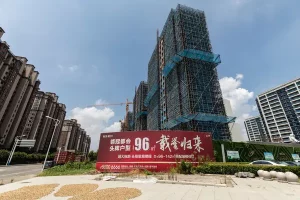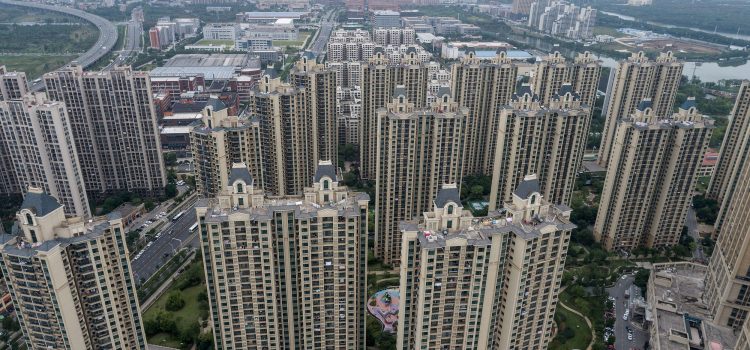
Introduction
China’s economic growth has been a marvel of modern times. Yet, one curious element in its economic framework has captured international attention: the absence of a comprehensive property tax system. While property taxes are a cornerstone of revenue generation and real estate market regulation in many countries, China has not adopted a consistent property tax structure. In this exploration, we aim to decipher the reasons behind China’s missing property tax system and unravel the profound implications it holds for the nation’s economic landscape.
The Absence of a Property Tax
The lack of a property tax system in China has left experts and policymakers bewildered. In most countries, property taxes serve as a vital income source for local governments and a mechanism for wealth redistribution. However, China has chosen not to implement a unified property tax system. Let’s delve into the underlying causes and the potential consequences of this absence.
Reasons Behind the Absence
Several factors contribute to China’s decision to abstain from introducing a property tax system:
1. Political Considerations
China’s centralized political structure is a pivotal factor. Local governments heavily depend on revenue generated from land sales, which they employ to finance local infrastructure projects. Introducing a property tax could potentially diminish the importance of land sales as a revenue source, potentially leading to financial instability at the local level. Therefore, the central government has been cautious about introducing property taxes that could jeopardize the financial foundation of local governments.
2. Real Estate Market Concerns
The Chinese government is wary of destabilizing the real estate market, a linchpin of economic growth. The real estate sector has a substantial impact on various industries and the broader economy. The introduction of a property tax, which could affect property values and demand, is perceived as a risk that might lead to market instability. Consequently, the government has hesitated to implement such a tax without carefully considering the potential consequences.
3. Socioeconomic Impact
The establishment of a property tax system in China would have a diverse socioeconomic impact. Wealthier individuals who own multiple properties could potentially bear a heavier tax burden, while lower-income homeowners might be negatively affected. The Chinese government must meticulously assess the potential impact on different segments of the population and ensure that the introduction of a property tax does not exacerbate social inequalities.
Potential Ramifications
The absence of a property tax system in China carries significant ramifications, affecting various facets of the nation’s economy and society:
1. Overreliance on Land Sales
Local governments in China heavily rely on land sales for revenue, leading to a scenario where local governments are heavily dependent on land sales as a source of income, sometimes at the expense of other revenue sources. Overreliance on land sales can hinder economic diversification and stability, as local governments may prioritize land sales over other important areas of development.
2. Speculative Real Estate Activity
The absence of a property tax can foster speculative real estate activity. Without a property tax to incentivize property owners to use their properties efficiently or discourage property hoarding, there’s a risk of increased speculation that could drive up property prices. Such speculation can potentially create a real estate bubble, which poses a significant risk to the nation’s financial stability. A property tax can serve as a tool to curb speculative behavior and promote a more stable real estate market.
3. Wealth Disparities
The absence of a property tax system means that the burden of local taxation remains unequal. Local governments primarily rely on sales tax and fees, which can disproportionately affect lower-income individuals. This situation can exacerbate wealth disparities, which is a concern in China as the government has expressed a commitment to reducing income inequality and fostering a more equitable society. The introduction of a property tax would allow for a more balanced distribution of the local tax burden.
4. Sustainable Development
China’s rapid urbanization and economic growth necessitate sustainable development. A property tax system can incentivize landowners to utilize their properties more efficiently and promote sustainable urban planning. By encouraging the responsible use of land, property taxes can contribute to more sustainable, environmentally friendly, and efficient urban development.

Comparative Table: Property Tax in China vs. Other Countries
To provide a clear overview, let’s compare China’s property tax situation with that of other countries that have established property tax systems:
| Aspect | China | United States | United Kingdom |
|---|---|---|---|
| Presence of Property Tax | Absent | Present | Present |
| Revenue Source | Heavy reliance on land sales | Property tax, local property assessments | Council Tax, Business Rates |
| Real Estate Market | Caution to avoid destabilization | Property taxes support local governments | Property taxes, significant local authority funding |
| Socioeconomic Impact | Potential wealth disparities | Varied impact depending on local tax rates | Council Tax and Business Rates are a common source of local government revenue |
| Sustainability | Limited promotion of sustainable development | Encourages responsible land use | Promotes sustainable urban planning |
Conclusion
The absence of a property tax system in China is a significant aspect of its economic structure. While political and market considerations have contributed to this absence, it has far-reaching ramifications. Overreliance on land sales, speculative real estate activity, wealth disparities, and sustainable development are some of the key issues that need to be addressed.
As China continues to evolve as a global economic leader, policymakers will need to carefully consider the introduction of a property tax system. Striking a balance between revenue generation, market stability, and socioeconomic equality will be crucial in shaping China’s economic future. The introduction of a property tax system can offer a more equitable distribution of the local tax burden, promote sustainable development, and reduce the risk of a real estate bubble. This step, if taken thoughtfully, could contribute to a more stable and balanced economic landscape in China.









